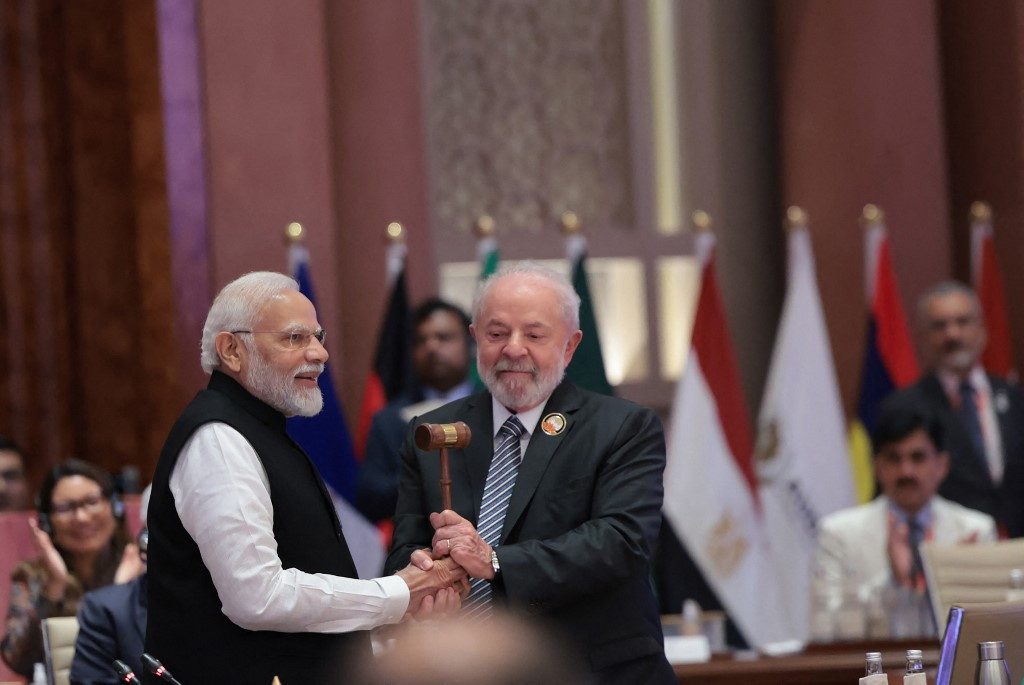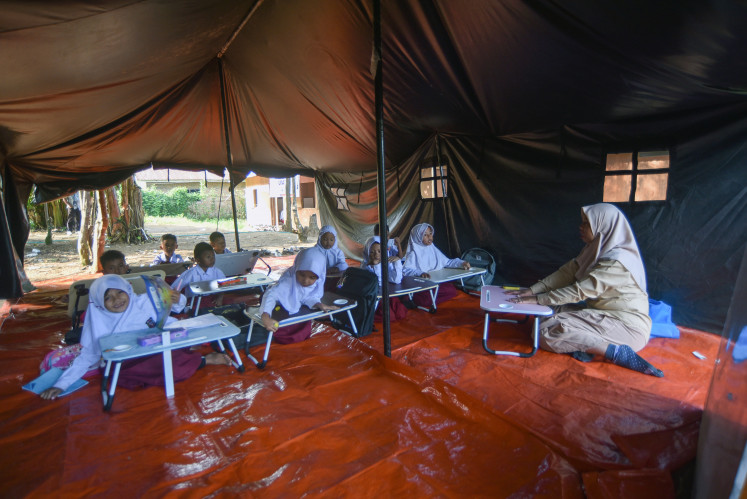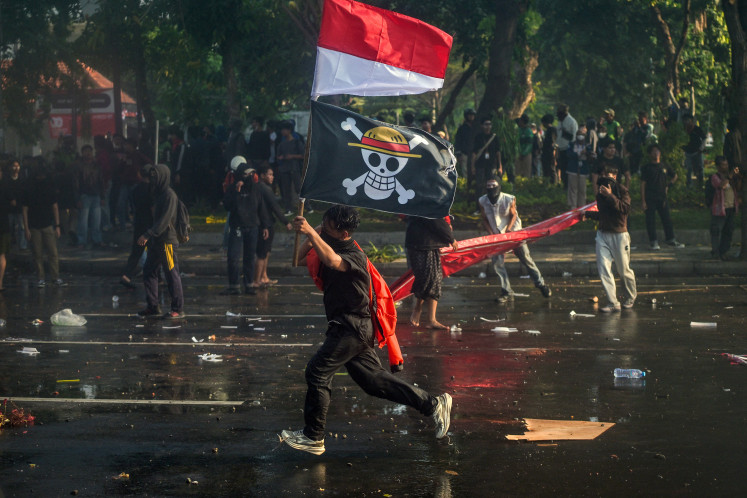Popular Reads
Top Results
Can't find what you're looking for?
View all search resultsPopular Reads
Top Results
Can't find what you're looking for?
View all search resultsCooling down at G20
There is a major commitment to boosting renewable energy use. G20 leaders agreed to triple renewable energy capacity globally by 2030 and accepted plans to phase-down coal power.
Change text size
Gift Premium Articles
to Anyone
It has been an exhausting time for global diplomacy over the past few weeks, especially for countries in Asia and the Pacific.
Tensions have built up since early this year with China’s growing assertiveness toward Taiwan and increasingly hostile engagement in South China Sea. While the world has continued to be divided between the United States and its allies and Russia over the latter’s invasion of Ukraine, it is quite understandable why US President Joe Biden feels the necessity to build alliances with major Asian countries such as Japan, South Korea and India to contain China.
After forming the Quad, a regional security forum that includes India, Japan and Australia, Biden has formed an agreement with South Korea and Japan to strengthen economic and defense partnerships, which specifically aim to counterbalance China.
China does not make it easy for itself. It has angered its neighbors in Asia by releasing its latest version of the South China Sea territorial map, in which its famous U-shaped line covered about 90 percent of the waters, much larger than the previous version of the map.
Unsurprisingly, when the Group of 20 Leaders Summit in New Delhi commenced over the weekend, not much was expected. With Chinese President Xi Jinping and Russian President Vladimir Putin giving the summit a miss, many doubted the group of the world’s 20 largest economies would produce something more significant in the Indian capital than they did in Jakarta last year, which was also overshadowed by the Russia-Ukraine war.
Amid the sharp divisions, delegates to the New Delhi summit were holding their breath. Unlike the meetings in Jakarta that saw leaders and delegates openly express their opposition to Russia, self-restraint was well exercised in New Delhi as evident in the declaration they produced. To everyone’s surprise, the declaration was already read out by Prime Minister Narendra Modi on the first day of the meeting.
One of the steps that the host took to accelerate consensus was by circulating the draft declaration that avoided the paragraph relating to the Ukraine war to member countries, which led to quick acceptance from the delegates.
The document refrained from direct criticism of Russia and instead called on countries to uphold the principles of international law, including respect for territorial integrity. Host India also pressed members to agree to renounce the use of force for territorial gain.
There is also a major commitment to boosting renewable energy use. G20 leaders agreed to triple renewable energy capacity globally by 2030 and accepted plans to phase-down coal power, although there are no targets to phase out fossil fuels.
The stronger commitment to renewable energy can be considered a major win after a series of failures of countries across international forums to agree on making commitments to curb the use of fossil fuels in the past year.
The results in India have been a great relief since they have defused tension among big powers, and New Delhi should take the credit. It has restored confidence in multilateral forums like the G20 as spaces to seek common ground no matter how small and fragmented the group may be.
But it is also a reminder for all parties to step back to avoid the worst from occurring whenever tensions move an inch closer to becoming a full-blown conflict.
India might have done its job as G20 host in an excellent way amid contradictory views among member countries about the Russia-Ukraine war. But when it comes to the South China Sea, India could not remain neutral as it has openly resented China’s unilateral claims.
It would be more productive if countries could cool down and put tensions behind while entering economic and business forums like the G20. Or even better, they, especially big powers like US and China, should forge stronger economic partnerships, rather than building security or defense alliances to fight others.
Economic cooperation has proven to help countries avoid the trap of geopolitical tensions.











